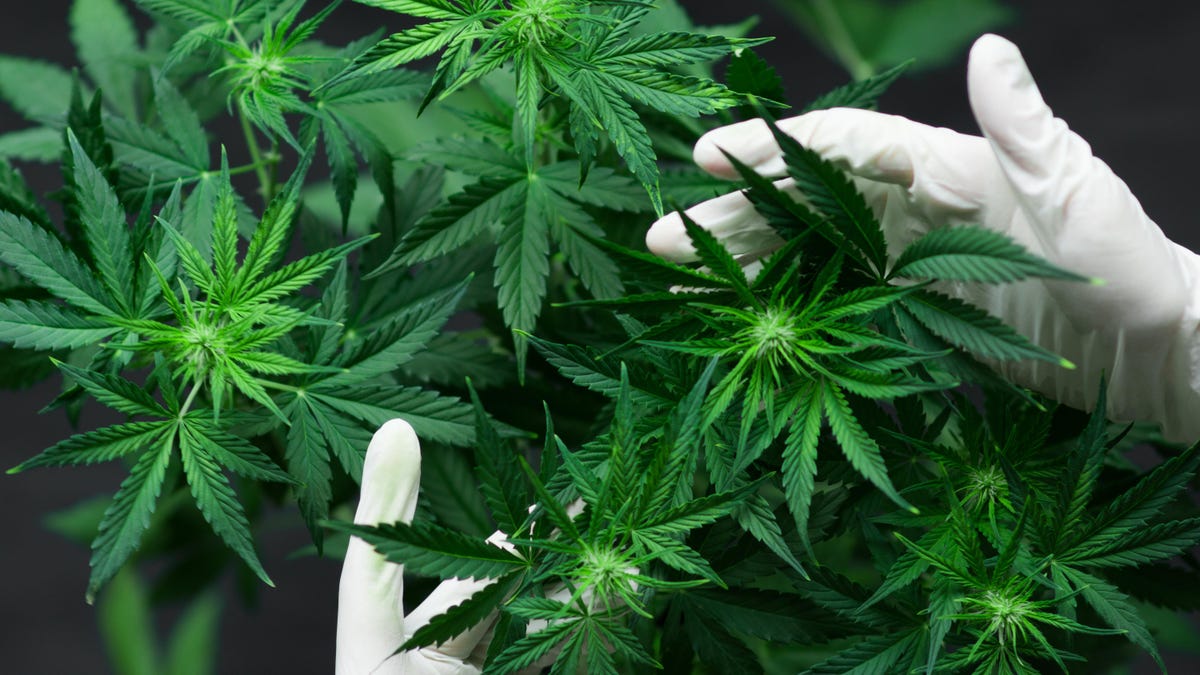Cannabis is expected to officially become a less dangerous drug in the eyes of the U.S. government. The Associated Press reported Tuesday that the Drug Enforcement Administration will soon propose to reclassify cannabis. The change will likely still take some time to come into effect and would not legalize it recreationally on a national level, but it will make the drug easier to study and use as a medical treatment moving forward.
Drugs in the U.S. are classified into one of five categories by the federal government, depending on their potential for harmful dependence and overall medical value. Cannabis is currently designated as a Schedule I controlled substance, which are drugs that are considered to have no accepted clinical use as well as high abuse potential. Other Schedule I drugs include heroin, LSD, and ecstasy.
President Biden has explicitly backed a change in how cannabis is scheduled throughout his administration (during the 2020 campaign, his platform supported a move to Schedule II). Last summer, the U.S. Health and Human Services endorsed the rescheduling of cannabis from a Schedule I to Schedule III controlled substance. These drugs are considered to have legitimate medical value and a moderate to low potential for abuse, including such drugs as Tylenol with codeine, anabolic steroids, and ketamine. An endorsement from the HHS is an important part of the process needed to reclassify a drug, but the authority needed to do so ultimately lies with the DEA.
Despite some hope that the DEA would follow suit with its own endorsement later that fall, the agency remained officially silent on the topic at the time. But according to the AP, the DEA has now agreed with the HHS’ assessment to move cannabis down from Schedule I to Schedule III, and will release its own proposal in the near future. The AP purportedly confirmed this new development with five anonymous sources familiar with the matter.
The DEA’s proposal will still have to be reviewed by the White House Office of Management and Budget before it can formally go forward. From there, the DEA would establish a public comment period where people can offer potential changes to the proposal. After that, according to the AP, there would need to be a review by an administrative judge before the proposal can be finalized. But barring any unlikely complications, it’s almost certain the U.S. will soon see the largest change in its drug policy in some quite time.
Many states have enacted their own laws legalizing or decriminalizing cannabis use, but the drug remains strictly regulated on the federal level due to its scheduling. Simply moving cannabis down to a Schedule III drug would not automatically legalize it everywhere recreationally. But it would lead to much looser nationwide restrictions on how it can be grown, sold, and used. The change would also make it easier for scientists to study the potential medicinal properties of cannabis, and it should allow cannabis-related businesses to save money by claiming certain tax deductions.
As historic as this change is, many drug policy advocates argue that the move falls short of the Biden administration’s stated goal to pursue decriminalizing cannabis, and they add that much more needs to be done to repair the damage caused by the longstanding restrictions imposed on cannabis use.
“Supporting federal marijuana decriminalization means supporting the removal of marijuana from the Controlled Substances Act, not changing its scheduling,” said Cat Packer, director of Drug Markets and Legal Regulation at the Drug Policy Alliance, in a statement released by the group this afternoon. “We all deserve a federal framework for marijuana that upholds the health, wellbeing, and safety of our communities—particularly Black communities who have borne the brunt of our country’s racist enforcement of marijuana laws.”

